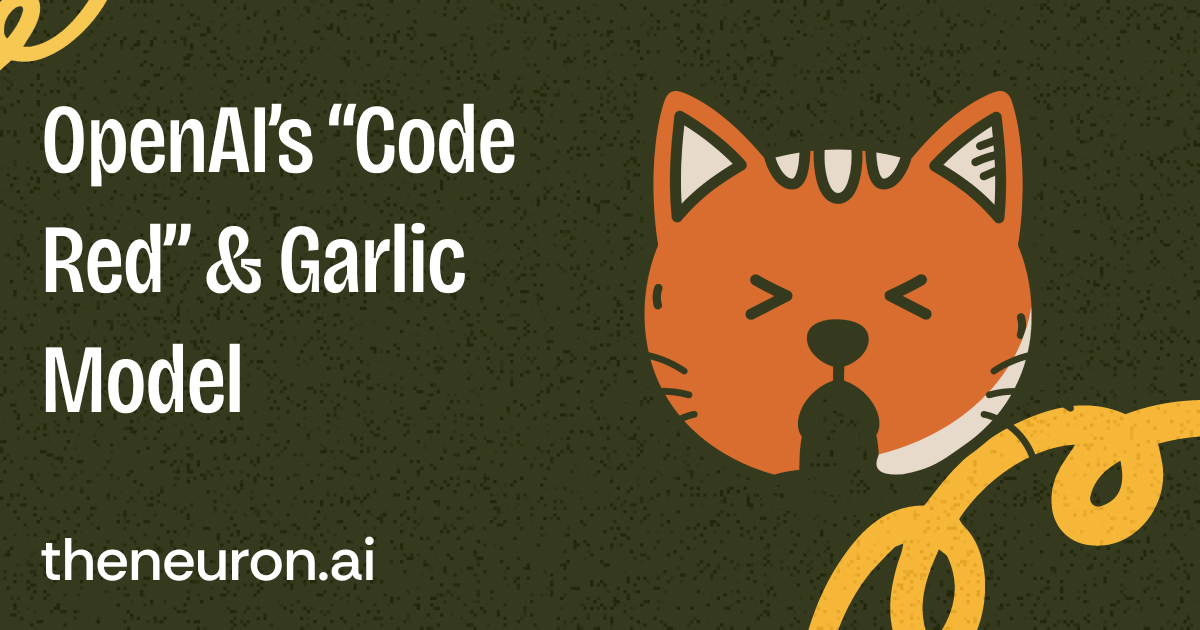Welcome, humans.
A few months ago, an MIT study claimed AI could rot our human brains. I'll admit that I panicked a little. Started questioning whether ChatGPT was rewiring my neurons for the worse. Then I realized something. It's just a tool, like a calculator or a dishwasher. My brain's fine (probably).
Well, plot twist: turns out LLMs can get brain rot too. Researchers just proved that feeding AI models low-quality internet junk (think viral tweets, clickbait, and doomscroll fodder) actually makes THEM dumber. Their reasoning skills decline, they skip steps in their thinking, and they even develop “dark personality traits“ like narcissism and psychopathy.
So basically, AI and humans are both getting cooked by the same terrible content. The internet truly is the great equalizer!
Here’s what happened in AI today:
- Anthropic is in talks with Google for a multibillion-dollar cloud deal.
- OpenAI released their AI browser called Atlas.
- Netflix goes “all in“ on genAI for special effects and production.
- A retina implant lets people with vision loss read and do crossword puzzles.

Anthropic Is Flirting With Google, While OpenAI Launches a Full AI Web Browser…
Anthropic, the company behind Claude, might be about to level up in a big way. According to Bloomberg, they are in early talks with Google about a cloud computing deal valued in the “high tens of billions of dollars“ which would give Anthropic access to Google's custom TPU chips designed specifically for AI workloads (video).
Here's why this is interesting: Google's already invested about $3B in Anthropic over the past few years. But this potential new arrangement would be way bigger because we're talking a partnership that could rival what OpenAI has with Microsoft.
And here's where it gets spicy: Amazon has invested about $8B in Anthropic and currently provides AWS cloud services. When Bloomberg broke the news about these Google talks, Amazon's stock dipped 2% while Google's jumped 3.5%. Wall Street clearly sees potential for the competitive landscape to shift.
Why this matters (IF it happens): OpenAI has Microsoft bankrolling essentially unlimited Azure infrastructure. That's a huge advantage when you're training massive models and need tons of compute. Anthropic's been splitting resources between Amazon and Google, but neither partnership has matched the scale of Microsoft-OpenAI.
This potential Google deal would change that. Anthropic would get infrastructure that matches OpenAI's backing, transforming it from “the thoughtful alternative“ into a genuine scale competitor. For Google, it's a chance to showcase Claude across Google Cloud's enterprise ecosystem and fight back against Microsoft-OpenAI's dominance.
The talks are early-stage, so don't hold your breath just yet. But if this goes through? It could help Anthropic meaningfully keep up with OpenAI.
Speaking of keeping up… After Claude revealed Claude Code for the Web yesterday, OpenAI launched ChatGPT Atlas, its new agentic web browser that can take actions on your behalf (launch video). Think Chrome or Safari, but your AI assistant is always watching over your shoulder (in a helpful, not creepy way??).
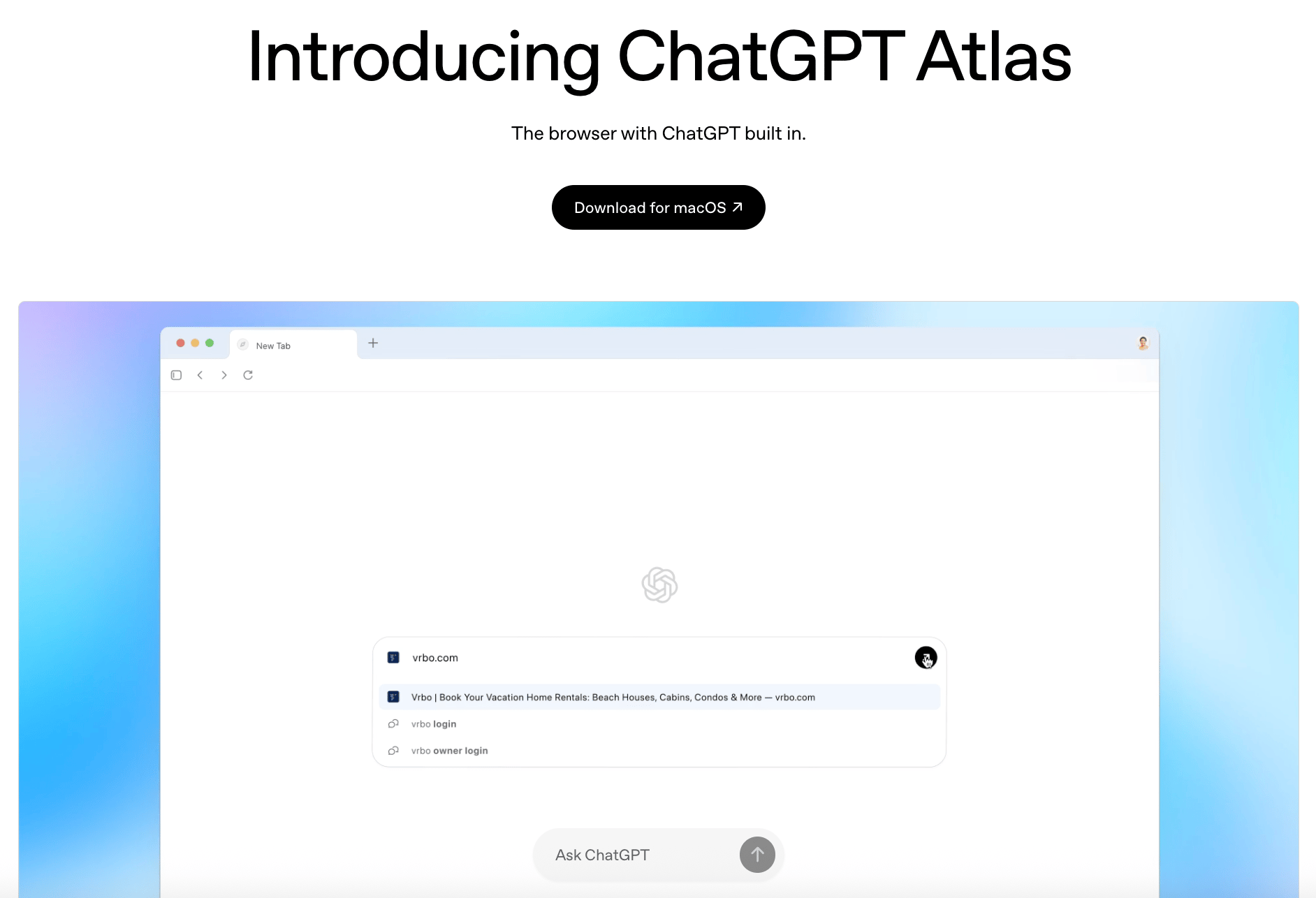
Here's how it works: Atlas can see what you're looking at on any webpage and instantly help without you needing to copy/paste or switch tabs. Researching hotels? Ask ChatGPT to compare prices right there. Reading a dense article? Get a summary on the spot. The AI lives in the browser itself.
The coolest features:
- Browser memories: ChatGPT remembers context from sites you visit (totally optional and you control it). Ask questions like “Find all the job postings I looked at last week and summarize the trends.”
- Agent mode: ChatGPT can actually DO things for you; research topics, book appointments, or automate tasks while you browse.
- Works in your flow: The new tab page lets you ask questions or search the web, showing faster results with tabs for search links, images, videos, and news.
Atlas is available for Plus, Pro, and Business users. The catch? It's Mac-only for now (Windows, iOS, and Android coming soon). And while browser memories sound powerful enough to be sketchy, OpenAI is very clear you're in control; you can view them, archive them, or delete them anytime in settings.
Get started here, or check out the recent release notes for more.
Our take: Before Google could enjoy its victory lap from the Anthropic deal rumors, Atlas came out and its stock dropped 5% (~$150B). Now, we’re not going to say Google is cooked (you could argue its a bit of a frog in a boiling point though!), but its competitor Perplexity definitely is; Atlas has something like 80% of the same features as Perplexity’s Comet browser, plus some new ones, and with the added benefit of 800M weekly active users it can convert to Atlas users on a rolling basis.
Aravind Srinivas, you better have some new ideas to roll out soon!

FROM OUR PARTNERS
Forget vibe coding—go from idea to launch-ready app in minutes
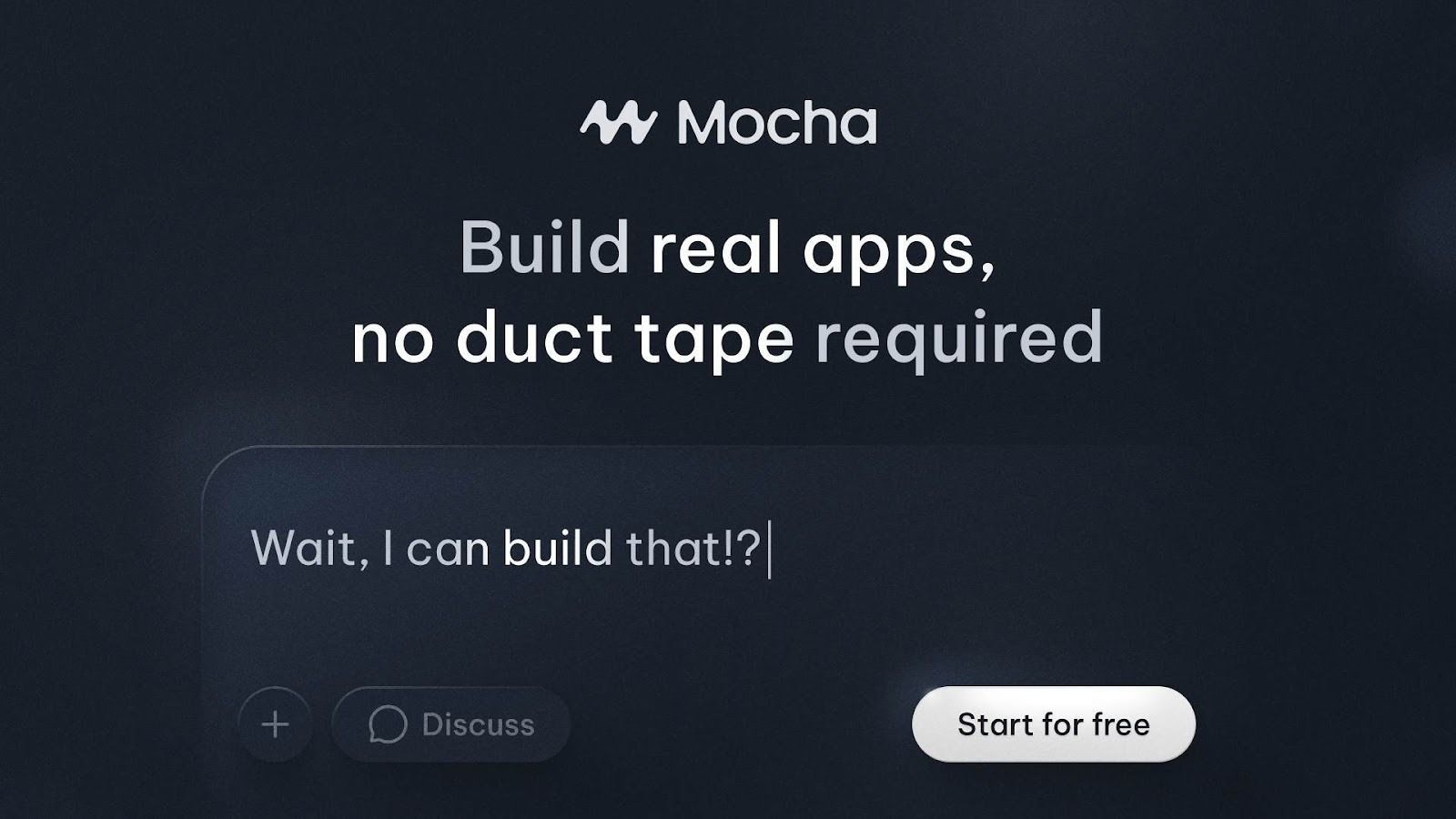
Other app builders make you juggle Supabase, Firebase, or half a dozen APIs.
Mocha is all-in-one and easy: Backend, auth, payments, hosting, and database—plus AI features like chatbots and image generation.
How it works: You describe the app, Mocha builds it end-to-end. Sample prompts:
- "Add Google login so users can save their history"
- “Add Stripe integration so people can pay me”
- "Store user information in the database"
- "Add an AI chatbot that gives users personalized fitness advice."
- “Create an image generation app”
Launch in minutes, scale without glue.
👉 Join 100,000+ founders to start building today

Prompt Tip of the Day
Productivity expert Grace Leung just dropped a 28-minute masterclass on being a top 1% ChatGPT user. Here are the best tricks:
- Self-reflection hack: Before ChatGPT writes anything important, ask it to first define what “world-class“ looks like for that task, then iterate based on its own rubric. Results are noticeably better.
- Chat branching for decisions: Exploring career moves or business strategies? Use “what if“ to create conversation branches for each path, so you can explore scenarios without diluting your main thread.
- Voice mode practice: Rehearse high-stakes conversations (asking for a raise, difficult client calls) by role-playing with ChatGPT. Then ask what the other person was “actually thinking but not saying.“
Our favorite insight: Build a custom GPT trained on your favorite thought leader's content to create your own AI coach. Grace uses Ali Abdaal's video transcripts for productivity coaching for on-demand guidance whenever you need it.

Treats to Try
*Asterisk = from our partners (only the first one!). Advertise in The Neuron here.
- Google DeepMind’s AI Foundations Course teaches you how to build and fine-tune language models through a free university-level (from UCL) curriculum with hands-on coding labs (free).
- LangChain provides the building blocks developers use to build, deploy, and monitor AI agents in production, connecting LLMs to real-time data and external tools (raised $125M at $1.25B valuation).
- Sesame is building fashion-forward smart glasses with a personal AI agent that talks in a natural-sounding human voice, so you can have conversations throughout the day hands-free (raised $250M, iOS beta now open).
- Sonura generates royalty-free loops, melodies, vocals, and full tracks in seconds, letting you layer multiple elements together and export stems for your DAW or share directly to Spotify and YouTube.
- Sparks lets you build custom AI agents from templates, chat with multiple agents and humans in real-time workspaces, and browse or publish agents in their store—starting at $20/month

Around the Horn

Try to find them at LM Arena! Rumor has it Gemini 3.0 launches later today! Stand by…
- Netflix went “all in“ on generative AI, using it to collapse buildings in “The Eternaut,“ de-age actors in “Happy Gilmore 2,“ and pre-visualize sets in “Billionaires' Bunker“ — though CEO Ted Sarandos insists “it takes a great artist to make something great.
- Pure Storage cofounder John Colgrove became a billionaire thanks to the AI boom driving demand for fast data storage, with the company's stock up 70% and a flashy Meta deal boosting profits.
- Science Corporation acquired a retina implant that produces artificial vision, letting patients with macular degeneration read books and do crosswords by sending electrical signals from a camera-equipped pair of glasses directly to a chip under the retina.
- Cloudflare CEO Matthew Prince urged UK regulators to force Google to unbundle its search and AI crawlers, arguing media companies can't opt out of AI scraping without losing search traffic and ad revenue, giving Google an unfair advantage over competitors like OpenAI who have to pay for content.

FROM OUR PARTNERS
2025 State of AI for Travel and Airlines Survey
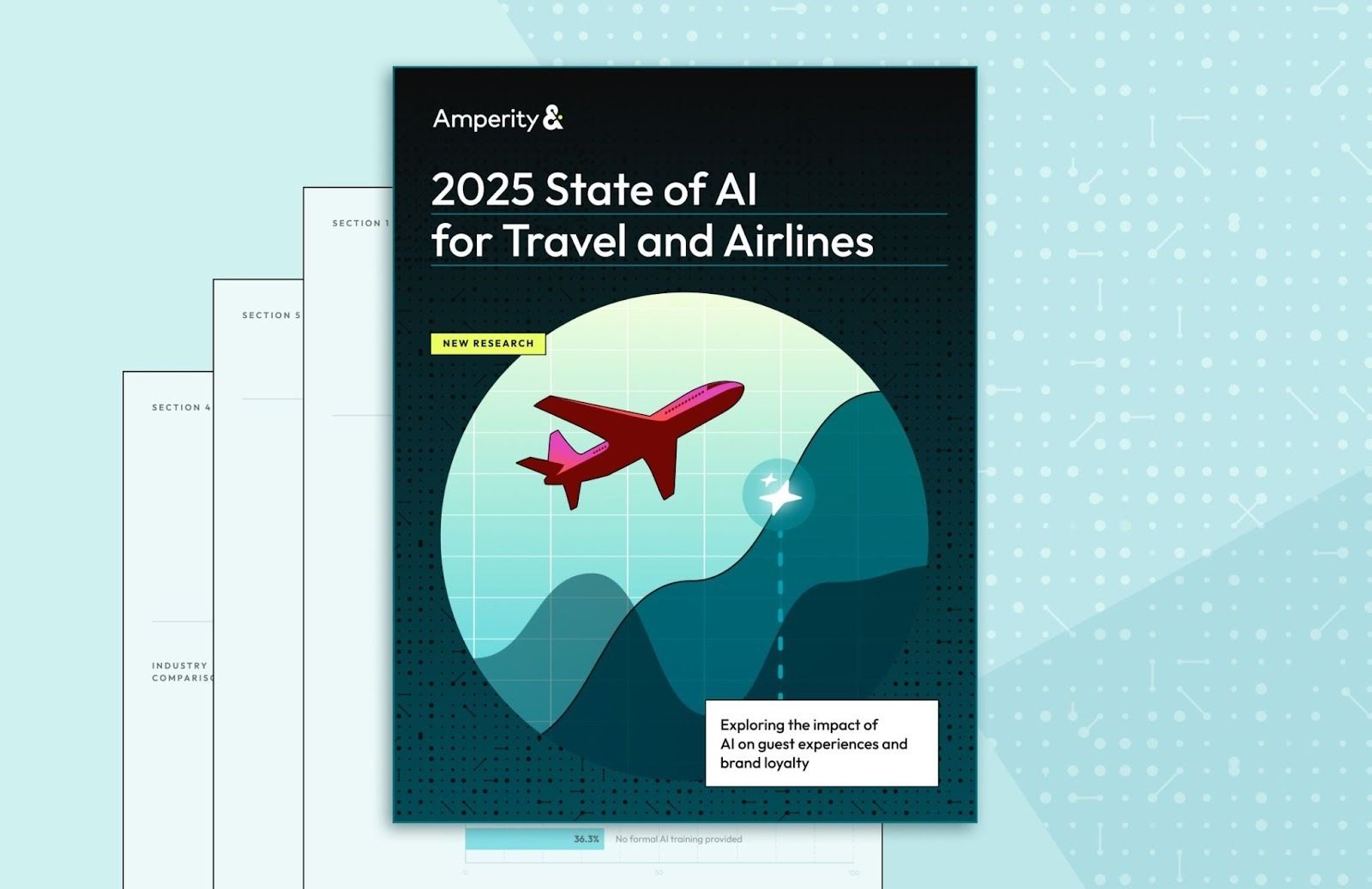
The 2025 AI in Travel and Airlines Survey explores how airlines and travel brands are using artificial intelligence to transform the passenger experience and drive business outcomes. It highlights where the industry is seeing the most value today—from personalization and service automation to revenue optimization—and where gaps still exist.
The report benchmarks how leading brands are investing in AI, what challenges they face with data and integration, and what separates innovators from those still experimenting.

Midweek Wisdom
- This NYT deep-dive explores how AI evaluators test what models can actually do: jailbreaking filters with emoji-speak and fictional scenarios, measuring how long AI agents can work autonomously, and finding that GPT-5 scored “high risk“ for helping develop lethal pathogens, moving AI danger from theoretical debate to concrete evidence.
- Here's why students actually use AI to cheat: A community college professor found that students caught using AI unethically weren't lazy, they were deeply insecure about writing after years of being told they're “not good writers,“ with one student admitting he'd never written a paper longer than a page and another saying “I know I'm not smart enough,“ revealing how K-12's stigmatization of mistakes drives students to AI rather than building confidence through practice.
- ChatGPT, Claude, and DeepSeek all express Western liberal values on topics like gender equality and LGBTQ+ rights regardless of whether you ask them in English, Chinese, Arabic, Hindi, French, or Spanish… suggesting AIs think in English first, then translate their answers (even DeepSeek!).
- The Agents4Science conference accepted 48 papers where both the authors and peer reviewers were AI agents (humans could only advise), creating a “sandbox“ to measure how AI-generated research compares to human work, complete with public reviews and data on error patterns, which could inform policies on AI use in science as conference submissions double partly due to AI-generated papers.
- Experts debated whether AI can be conscious, with David Chalmers predicting conscious language models within 5-10 years, while Anil Seth argued we're biologically wired to over-attribute consciousness to anything that behaves human-like, and Felipe De Brigard claiming “we've already lost“ the battle against AI deception because our biological deception detectors can't keep up with AI's evolution speed, echoing Microsoft AI CEO Mustafa Suleyman and late philosopher Daniel Dennett's warnings that seemingly conscious AI poses an existential threat by destroying the basis of trust in society.

A Cat’s Commentary
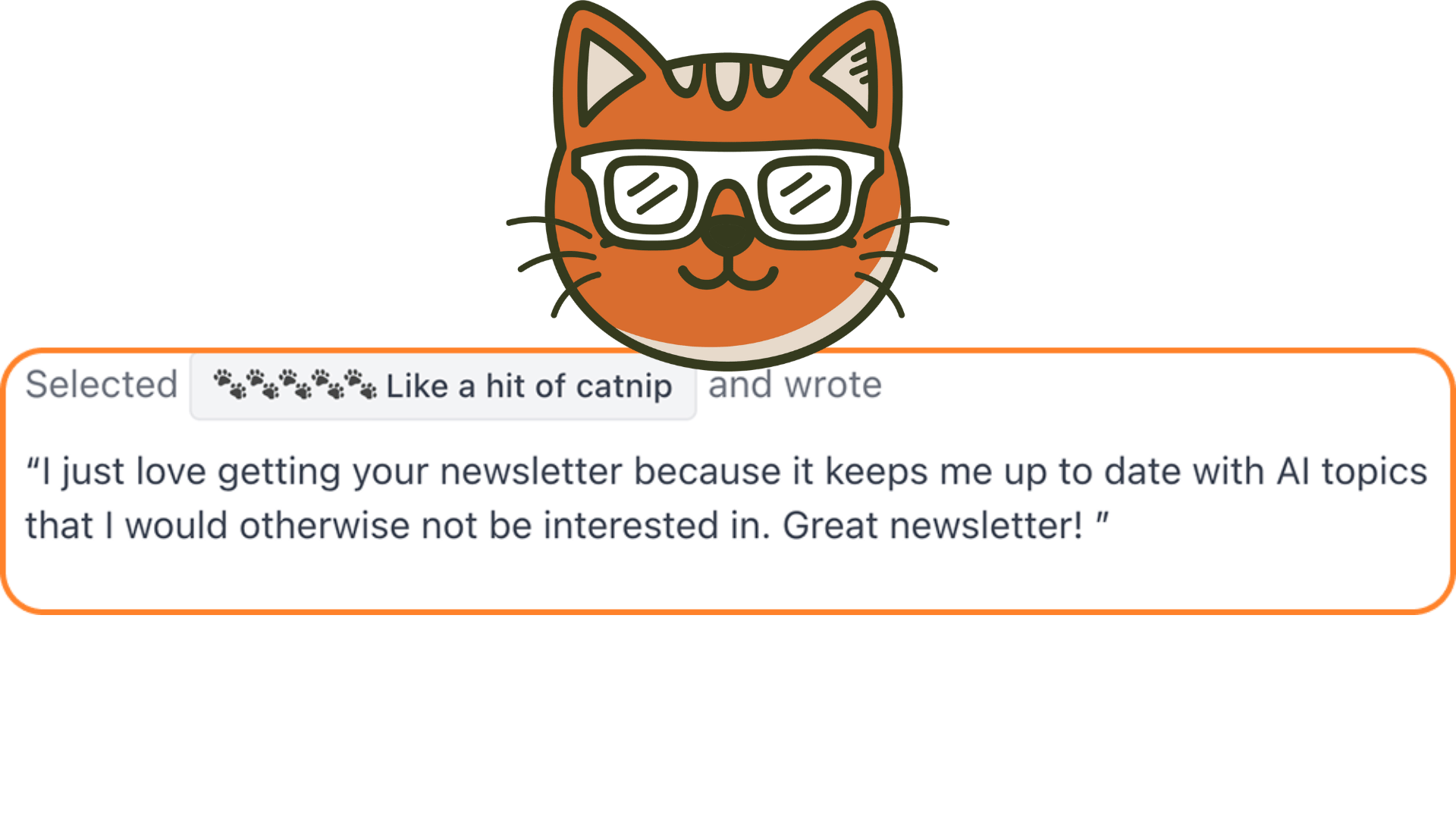


.jpg)

.jpg)


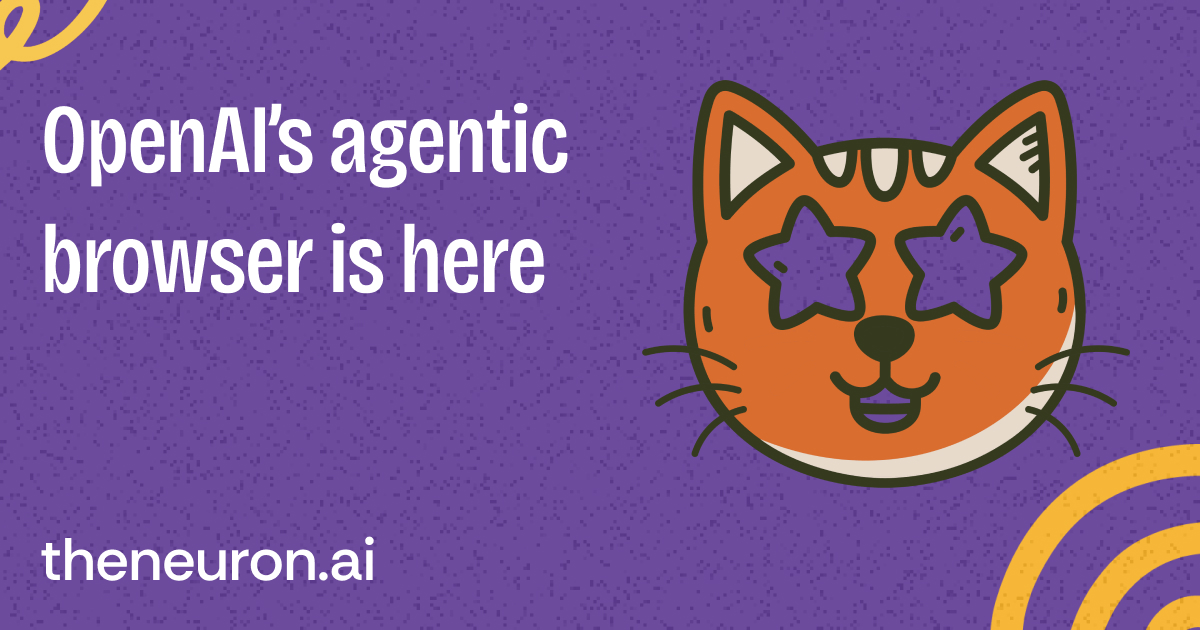



.jpg)

